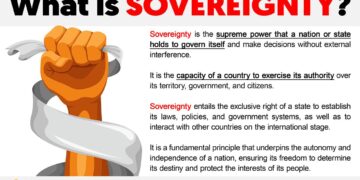Espionage Allegations Shake Taiwan’s Political Sphere Amid Rising Cross-Strait Tensions
In a recent and alarming development that underscores the fragile state of Taiwan-China relations, four former aides to Taiwan’s ruling Democratic Progressive Party (DPP) have been formally accused of espionage. Taiwanese authorities allege these individuals transmitted classified information to Chinese intelligence operatives, intensifying concerns over Beijing’s expanding covert operations targeting the island. This episode not only spotlights vulnerabilities within Taiwan’s political framework but also reverberates through the broader geopolitical contest in East Asia as both sides grapple with escalating mistrust and strategic rivalry.
National Security at Risk: The Espionage Charges and Their Broader Impact
The indictment of these ex-DPP staffers has ignited urgent discussions about safeguarding national security and preserving governmental integrity in Taiwan. Once regarded as loyal insiders, their alleged betrayal by funneling sensitive data to foreign agents threatens to undermine public confidence in political institutions. With China persistently asserting sovereignty claims over Taiwan—a self-governing democracy—the incident amplifies fears about infiltration tactics aimed at destabilizing Taipei from within.
This case could trigger a paradigm shift in how Taiwanese authorities approach internal security protocols. Enhanced scrutiny on officials with access to critical information is likely, alongside stricter controls on data management practices across government agencies. Public sentiment may also harden, fueling debates around national identity and prompting calls for stronger alliances with international partners committed to supporting Taiwan’s autonomy.
Geopolitical Context: Understanding the Escalating Strain Between Taipei and Beijing
The espionage accusations emerge against a backdrop of intensifying geopolitical friction between China and Taiwan—an environment marked by military posturing, diplomatic maneuvering, and ideological clashes. Experts suggest that this legal action reflects Taipei’s efforts to counteract growing anxiety over Chinese intelligence penetration ahead of pivotal elections where national security is paramount.
- Military Pressure: Recent months have seen an uptick in Chinese military exercises near Taiwanese airspace and waters; according to 2024 defense reports, incursions increased by nearly 40% compared to last year.
- Political Fragmentation: Internal divisions within Taiwanese politics create openings for external influence campaigns seeking to exploit societal rifts.
- Strategic Partnerships: The United States’ continued support for Taiwan remains a flashpoint; Washington’s arms sales provoke strong reactions from Beijing while reinforcing Taipei’s defensive posture.
Together, these factors contribute significantly to an atmosphere ripe for espionage activities aimed at gaining leverage or sowing discord amid cross-strait tensions.
Tightening Counterintelligence: Strategic Recommendations for Protecting Taiwan’s Political Integrity
The exposure of alleged spies within high-level political circles signals an urgent need for comprehensive reforms in counterintelligence measures throughout Taiwanese governance structures. To fortify defenses against future breaches, several key strategies should be prioritized:
- Rigorous Screening Procedures: Implement exhaustive background investigations during recruitment phases for all government personnel handling sensitive material.
- Cyber Defense Enhancements: Deploy cutting-edge cybersecurity technologies designed specifically to detect intrusion attempts linked with foreign intelligence services targeting digital infrastructure.
- Civic Education Initiatives: Launch nationwide campaigns educating citizens on recognizing signs of espionage activity while encouraging community vigilance without fostering paranoia.
- Bilateral Intelligence Cooperation: Strengthen collaboration channels with allied nations such as Japan, Australia, and European partners experienced in counterespionage tactics through shared training programs and real-time intelligence exchange platforms.
| Deteriorating Espionage Threats: Legal Reinforcements Needed | Description & Purpose |
|---|---|
| Tougher Sentencing Guidelines | Aim at imposing more severe penalties reflecting the gravity of compromising national secrets—deterring potential offenders effectively; |
| Whistleblower Safeguards | Establish robust protections ensuring those who report suspicious conduct are shielded from retaliation or career jeopardy; |
| Systematic Security Audits | Conduct regular evaluations across ministries/agencies assessing vulnerabilities related both physical access controls & digital systems; |
Navigating Forward: Implications for Cross-Strait Relations Amid Heightened Vigilance
This high-profile espionage case serves as a stark reminder that maintaining sovereignty requires constant vigilance—not only militarily but politically—as adversaries seek multifaceted approaches toward influence operations. As investigations proceed under intense domestic scrutiny—and international observers watch closely—the outcome will likely shape future policy decisions regarding transparency standards within government ranks as well as diplomatic postures vis-à-vis Beijing.
Taiwan stands at a crossroads where reinforcing internal cohesion must go hand-in-hand with cultivating resilient external partnerships capable of deterring covert threats effectively while preserving democratic values amid mounting regional instability.
Ultimately, this episode highlights how deeply intertwined issues surrounding loyalty inside political institutions are with broader questions about survival amidst one of Asia’s most volatile geopolitical flashpoints today.














